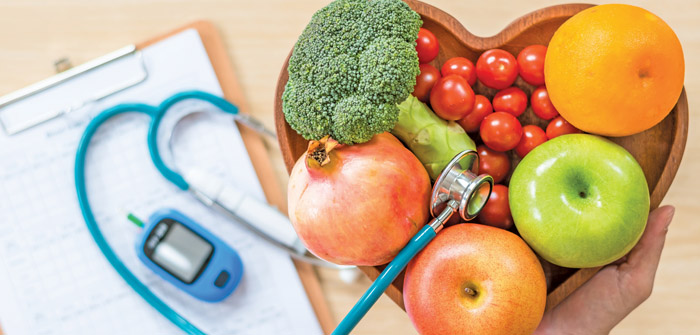(Photo | Courtesy of Synergy Health & Wellness)
In the following, I speak about diabetes and innovations to its programs and education with enhanced self-efficacy approach.
Why is educating people with Diabetes a priority to you and your team?
With over 306,000 Oregonians diagnosed with diabetes (9.5 percent of the adult population), and an estimated 1,097,000 (33.5 percent) adults with prediabetes, the need for education is at an all-time high. It is proven that diabetes self-management education and support (DSMES) is a critical element of care for people living with diabetes. There is considerable evidence linking DSMES to positive changes in health behaviors and improved diabetes-related outcomes. Just some of the benefits include:
- Improved hemoglobin A1c levels
- Improved blood pressure and cholesterol levels
- Higher rates of medication adherence
- Fewer or less severe diabetes-related complications
- Beneficial lifestyle behaviors, such as better nutrition, increased movement and activity levels and use of primary care and preventive services
- Enhanced self-efficacy
- Decreased health care costs, including fewer hospital admissions and readmissions
Why is it important to be ADCES (Association of Diabetes Care & Education Specialists) Accredited?
Simply put, the accreditation means that our team has proven that it meets and upholds the ten National Standards for Diabetes Self-Management and Support. These standards are agreed upon jointly by the ADA, ADCES and CMS.
Synergy’s diabetes program has held the ADCES accreditation since 2016 and is excited to have recently announced its team of diabetes educators are now certified and currently administering Medtronic and Omnipod insulin pumps to patients with both Type 1 and Type 2 diabetes. Our team are educators, but also, more importantly, we operate as a support system as we walk alongside clients through their diabetes journey.
Since starting your practice, have you seen a paradigm shift in diabetes management?
Yes, slowly. A lot of what we see in diabetes education is being done the same today as it was ten, 20 or more years ago. We are trying to change that! Last year at the ADCES national conference I heard the statistic that only five percent of people newly diagnosed with diabetes are receiving comprehensive diabetes education. Thinking about those earlier statistics on how many people are living with the condition, and how many of the complications of diabetes can be decreased or prevented, we want to be part of the solution and get more people into education programs.
We already feel like our approach to client care is different — really person-centered, non-judgmental and empowering, but after learning those stats and seeing what we’ve seen with other education programs we decided that we need to make our program really unique and enticing. That’s when we sat at the table and brainstormed, talked with stakeholders and started thinking about how to do education different, and better.
As a result, we’ve evolved our program to be really hands-on and experiential. Whether it’s seeing your blood sugars in real time through trial use of a continuous glucose monitor (CGM), eating a meal together and observing and discussing your blood sugar before during and after, learning how to cook or walking through the grocery store with your educator, we’re trying to make it all very interactive and engaging.
What is your process in educating people to Thrive with Diabetes?
Our clients know their bodies best — we’re here to help support and bolster that knowledge to improve diabetes and health outcomes. Our approach with education and promoting behavior change includes assessment, goal setting, planning, implementation, evaluation and shifting accordingly as we go — all with a shame-free promise. Unfortunately, at diagnosis, we find a lot of folks are experiencing shame or self-blame over this condition; we first start by educating people on factors that lead to insulin resistance such as genetics, social determinants of health and other considerations. We also start right away with empowering folks to realize that they can live perfectly fulfilling and happy lives while keeping an eye on their blood sugars. From there, we determine a client’s baseline knowledge and experience with diabetes and build from there; we work with clients to set individualized goals that will help them experience improved blood sugar levels while also fitting the changes into their lives realistically. Our Diabetes educators also work as part of the client’s health care team to align with other providers and add to their treatment plan.
Our clients within Central Oregon are consistently sharing the need for more interactive education and support opportunities. We aim to provide that supportive environment with our group diabetes education classes. Every quarter, we offer a four-week class session which is covered by most insurance companies. Topics discussed include:
- Education on diabetes, the disease process, factors that impact blood sugars, medications and more.
- (New addition) Patients will receive a test Continuous Glucose Monitor (CGM). Over a two-week period, patients will see how different foods impact their blood sugar in real-time.
- (New addition) A full meal will be served during class and integrate carb counting, blood sugar education and trending blood glucose levels in real-time.
- Examine behavioral strategies that can help people stay on track with their treatment or get back on track, and even thrive with diabetes.
- Discuss real-life tips and tools for recognizing and moving through the emotional aspects of diabetes.
Where do you see the future of diabetes educators and their role with patient care?
Diabetes educators will continue to be valuable partners for both patients and physicians. In the future, we hope to see diabetes educators and DSMES programs like ours offered to every person living with diabetes. In the past, education has been valued at the highest level, but we have learned that knowledge doesn’t always bring behavior change. Educators need to adapt to meet the patient where they are today and help find the right tools for each individual to support their own version of thriving diabetes.
At Synergy, all of our diabetes educators are also Registered Dietitian Nutritionists. We understand that food has many roles in our lives — beyond nourishing our cells, foods also nurture our soul. We help people move away from dieting and restriction and instead towards an intuitive eating style that benefits both physical and mental health.




